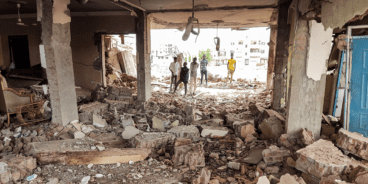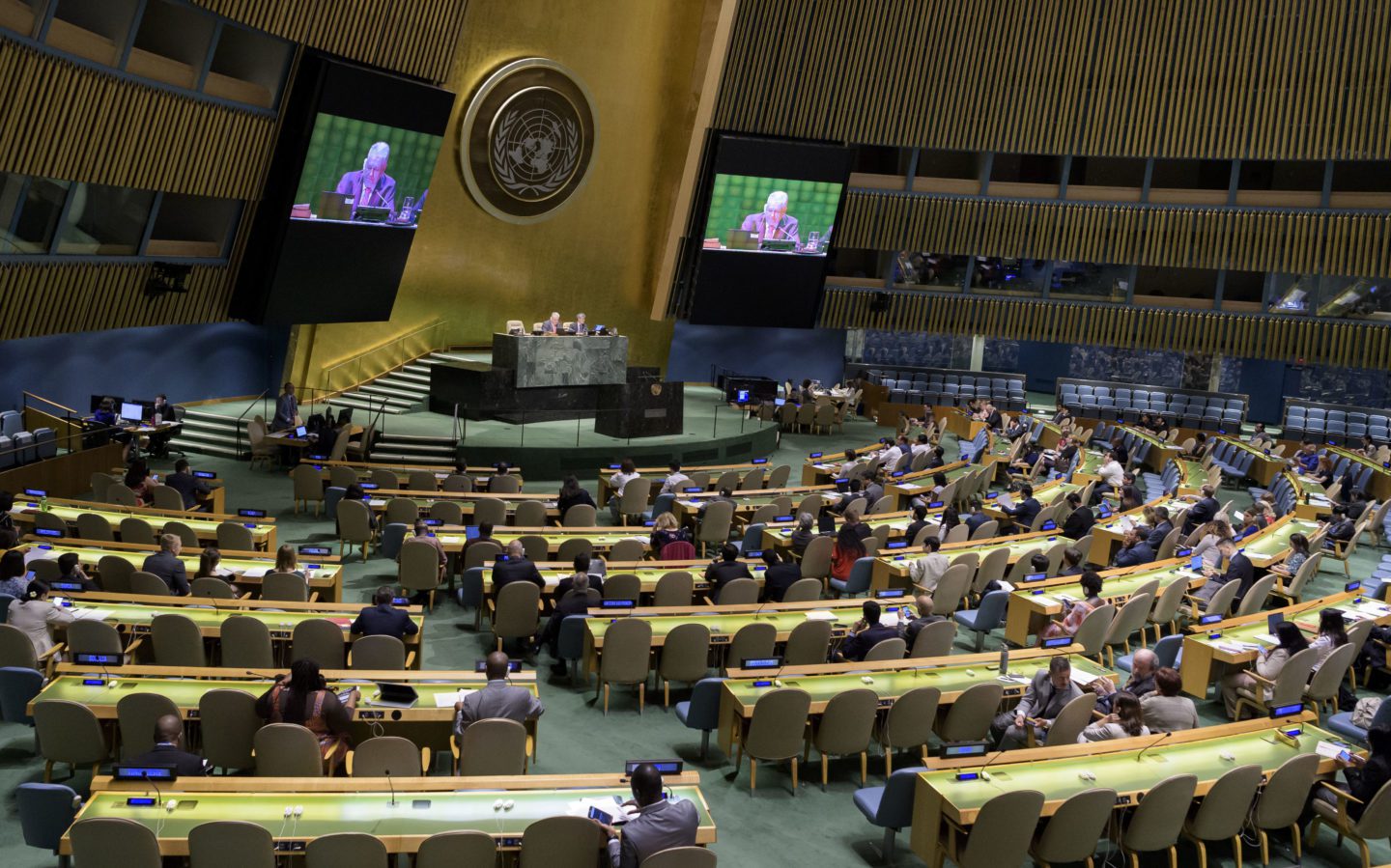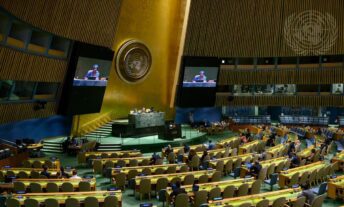
Remarks at the Launch of the Code of Conduct regarding the UN Security Council action against genocide, crimes against humanity or war crimes
I would like to thank the Foreign Minister of Liechtenstein for organizing today’s launch of the ACT Code of Conduct regarding Security Council action against genocide, crimes against humanity and war crimes. I’d also like to acknowledge the statements delivered by the President of the General Assembly, the High Commissioner for Human Rights and the Secretary-General of Amnesty International. And I thank the two brave Syrian friends who are here in the chamber with us today.
Nobel Peace Laureate Ralph Bunche once remarked that “if you want to get an idea across, wrap it up in a person.” In this case, the idea of a UN Security Council code of conduct in mass atrocity situations is wrapped up, not in the memory of a single person, but in the quarter of a million people killed in Syria since 2011, the over 800,000 murdered during the 1994 Rwandan genocide and the 8,000 men and boys massacred at Srebrenica 20 years ago.
Those who are opposed to reform of the UN Security Council will say that this is simply an issue of working methods, or a question to be privately contemplated by lawyers and bureaucrats. They are wrong. This is about vulnerable people whom the UN Security Council has a responsibility to protect. This is about preventing atrocities and protecting those who would otherwise be destined for the torture chamber or the mass grave.
This is why we are proud to have worked closely with the Permanent Mission of Liechtenstein and the wider ACT group, as well as the French and Mexican governments, on this historic campaign.
Today, we celebrate the fact that 103 states, representing a clear majority of the UN membership, have signed up to the ACT Code of Conduct. Our role now is to ensure that this consensus is accompanied by meaningful action that continues to enhance the accountability, coherence and transparency of the UN Security Council.
In this tenth anniversary year of the Responsibility to Protect, and acknowledging tomorrow’s seventieth anniversary of the UN, we reaffirm our belief that the Security Council’s relevance, success and survival in our century will be measured by its ability to prevent and protect humanity from mass atrocity crimes. “We the peoples,” expect nothing less.
I thank you.
Related Content


Summary of the 2023 UN General Assembly Plenary Meeting on the Responsibility to Protect
